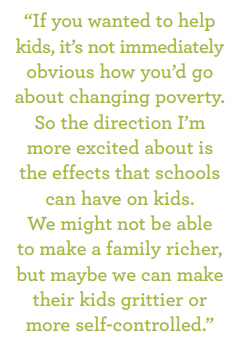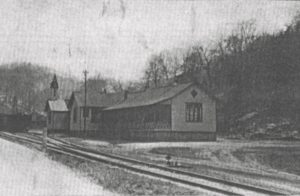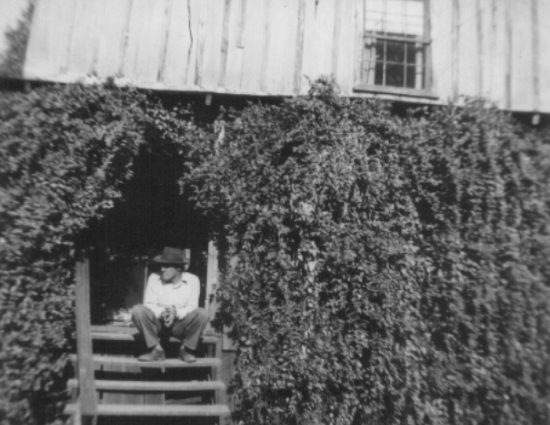I love Autumn and Winter. I love the trees’ rustic changing colors and the crisp, cool temperatures, abated by a snuggly fleece throw and a cup of hot chocolate. I love the greater sense of my ancestors as the veil thins. I love wooly worms and pumpkin patches and bonfires. I love harvest time and bright moons and not mowing. I love snowfall and snowpersons and snowball fights. I love toboggins and mittens and warm coats. I love my rosy cheeks and cheery countenance. Fall and Winter conjure so many pleasant memories for me. Oddly enough, this introduction brings me to what I’d like to write today, and that is, in a word, grit. Though I’ve had “grit” all my life, a new concept of the term has arisen in education that I think should be addressed. I don’t know if my post will be gritty enough, but here goes . . .
I hear talk about us here and there. Us Appalachians. About our lifestyle. Our backward ways. About how, if we had grit, we’d realize our full potential and achieve our dreams. If we had grit, we’d excel and become someone worthy. And, if we have no grit, we are unmotivated, and “un” everything. Consequently, we’re perceived as people who sit on our derrieres, anxiously awaiting the mail for our government checks. We’re told we just need to develop a little grit, pull ourselves up by the bootstraps, and get a job – even two or three to make ends meet. Yes, if we just had a little grit.
What, exactly, is grit? Well, in this context, it isn’t what Joe Pesci’s Vinny Gambini experienced in My Cousin Vinny. But, perhaps, “grit” is a little closer to John Wayne’s Rooster Cogburn and Kim Darby’s Mattie Ross in True Grit.
Merriam Webster defines “grit” as:
. . . mental toughness and courage; firmness of mind or spirit: unyielding courage in the face of hardship or danger.
Psychology Today says:
If you’re gritty, you attain success through endurance, perseverance, resilience, passion, hard work, and practice, practice, practice. If you persist and face all the obstacles, you may just win . . . [emphasis added]
The concept of “grit” as a character trait in education was developed by psychologist and scientist Angela Duckworth who specializes in character development. She defines grit as “sticking with your future, day in and day out, and not just for the week, not just for the month, but years.” She discusses the concept in her New York Times bestseller, Grit: The Power of Passion and Perseverance. Duckworth “grew up in Cherry Hill, New Jersey, the daughter of well-educated parents who’d immigrated from China.” She attended both Harvard and Oxford.
To test her theory about grit, she conducted research on several groups of students. West Point was one of those groups. She and her colleagues used a “grit scale” to determine who would graduate and who wouldn’t. Those who graduated, they found, exhibited this “grit”. Likewise, they applied the same research on students in Chicago, Illinois, and found the same results. Students who had “grit” excelled. Students without grit didn’t succeed, even if they had high IQs.

Duckworth makes some good arguments. Her main theory is the goal to promote positive character development in children so they can form a sort of “grit foundation” – remaining true to their passions, persevering through difficulties, and overcoming any obstacles to success. The education system gobbled up her “grit” concept, believing it to be yet another magic bullet, a needed cure, for a fraught school system that has truly never had the resources to teach poor or impaired or disabled or struggling children.
So, what’s my beef with her theory? Well, it sounds just lovely. Just have grit. Grit will solve everything in the long run. For one thing, her notion of grit does not consider causality, especially uncontrollable circumstances that go well beyond “obstacles.” Her idea assumes schools have sufficient resources, and, if not, they have teachers who love to teach and edify students. (From my personal experience as a student and as a mother, most teachers love teaching. Some, however, seemingly do not.) Her idea of grit doesn’t consider poverty or hunger or disability or violence or abuse or . . . A disabled student, for example, who sweated through the completion of a one-page paper has grit, whether or not that student plans to attend college.
Another reason I take issue with her theory is because “grit” is relative. Appalachians have always had grit, though maybe not in traditional ways or considerations. Having grit is basic survival here. To tie all this into my introduction, I’d like to share some stories about myself and my ancestors. When I was younger, the water pipes froze in winter, all down the holler. Consequently, we had no running water from three to six months of the year, depending on how long winter lasted. The amount we saved in milk jugs was never enough. So, in the dead of winter with snow past our ankles, we trekked toward a few natural springs, filled our empty jugs with drinking water, and hauled them back to the house in a little red wagon. My mother shoveled snow into a large stockpot, melted it, and used that water to bathe or flush the toilet. That’s grit. Those moments brought us closer together and taught us survival.

My great grandparents lived in a coal camp in Westbourne, Tennessee. When my great-grandfather became disabled and was unable to mine, the threat of eviction loomed large in their family of sixteen (at least). My great uncle, Conley, understood the dire situation, so, he became a miner at thirteen years old so they could keep their home. And he gave what money he made to the family. That’s grit.
In my opinion, grit is not a finite concept. A person doesn’t have to achieve wealth or celebrity, or further his, her, or their education to possess this quality. The characteristic is already there, already being used, already part of the person. Nine times out of ten, people who say that mountain people just need to have grit and do something with their lives wouldn’t last a day in our shoes. I’ll give another little anecdote:
I once worked as a pharmacy technician when I was a single mother. My boss was quite a wealthy woman whose salary was three to four times what I made. She had two small children and was in the process of divorce. She had all the luxuries of life: huge house, a pool, a cleaning lady/ nanny, SUV, hefty investments, a boat, designer clothes, etc. I wasn’t envious, but I did feel the brutal punch of a not-so-veiled class system compared to my meager rented home of about 900 square feet. Nevertheless, I tried to console her on a particularly bad day. She looked at me in all seriousness, without a thought in the world, and said:
“You don’t understand. I don’t even have enough money for a pedicure!”
I just looked at her, quite dumbfounded. A pedicure was the least of my concerns. A day or so later, one of my co-workers pulled me aside and said,
“I do my own toes. If she had to live just one day in our shoes, she’d blow her brains out.”
Like I said, having grit is relative. For one person, grit may mean achieving your dreams by persevering and overcoming obstacles. For another person, having grit may mean writing an elegy about his own hillbilly ancestors, while never acknowledging the grit it took to make him. For yet another person, grit may mean the stick-to-itiveness it takes to survive. I honestly can’t think of a fellow Appalachian who doesn’t have grit. Everybody I’ve ever encountered here has it. Now, whether they have good grit or bad grit is a topic for another day.
**Featured image of my great-grandfather, Horace Maynard Goins, on the steps of his coal camp home in Westbourne, Tennessee, surrounded by wild roses – Delonda Anderson’s collection



Very good points, especially that grit must be defined and evaluated within the context of one’s life circumstances. Even Duckworth acknowledges that grit is one dimensional: “I’ve been asked, on more than one occasion, why I feel grit is the only thing that matters. In fact, I don’t. I can tell you, for example, that grit is not the only thing I want my children to develop as they round the corner from childhood to maturity. Do I want them to be great at whatever they do? Absolutely. But greatness and goodness are different, and if forced to choose, I’d put goodness first. As a psychologist, I can confirm that grit is far from the only—or even the most important—aspect of a person’s character. In fact, in studies of how people size up others, morality trumps all other aspects of character in importance. Sure, we take notice if our neighbors seem lazy, but we’re especially offended if they seem to lack qualities like honesty, integrity, and trustworthiness. So, grit isn’t everything. There are many other things a person needs in order to grow and flourish. Character is plural.”
Duckworth, Angela. Grit: The Power of Passion and Perseverance (p. 273). Scribner. Kindle Edition.